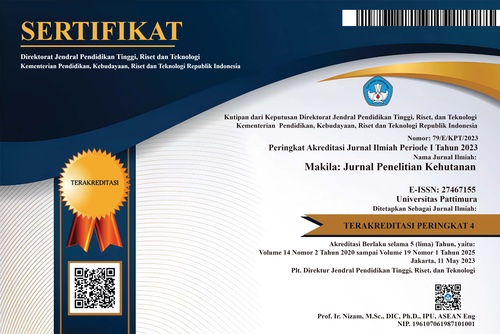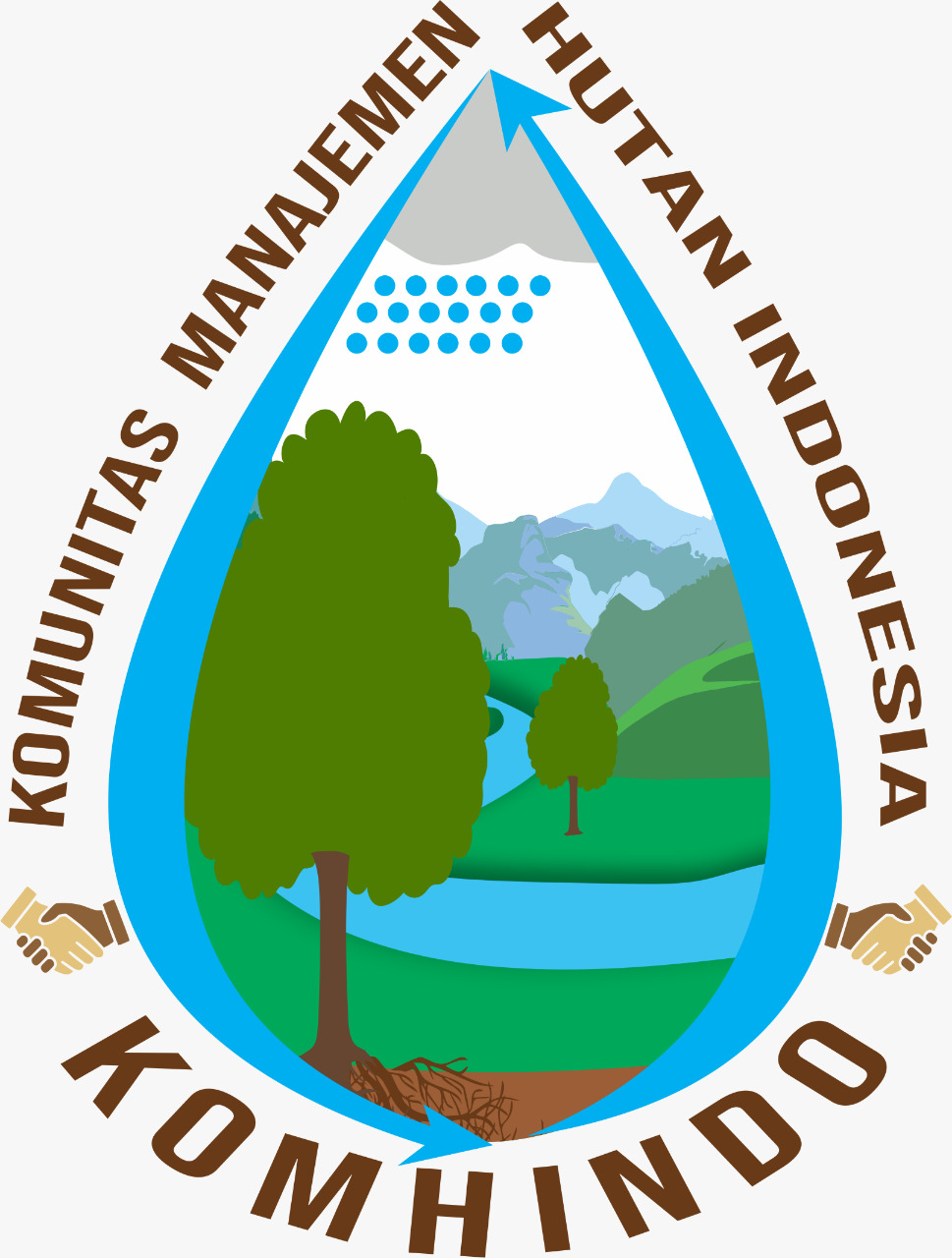Persepsi Masyarakat Mengenai Peranan Vegetasi Kawasan Sabuk Hijau Di Sempadan Sungai DAS Wae Batu Gajah
Abstract
Green open space is at least a minimum requirement for an environmentally sustainable city at 30% of the total area. Pressure on green free space, especially the Green belt area in the river border, tends to increase from year to year due to an increase in urban population. Therefore, this study aims to analyze people's perceptions of the green belt vegetation's role in the watershed of the Wae Batu Gajah watershed in Ambon City. The research method uses descriptive methods that describe a situation based on facts in the field and do not treat the object, with the hypothesis testing procedure using Chi-Square. The results showed that the community's socio-economic parameters consisting of age, formal education, and occupation had a significant influence on the understanding of the green border of the river. In contrast, gender and marital status parameters have no significant effect on understanding the green belt border. Formal education can influence attitudes and behavior through values, character, and understanding of a problem built in stages in a person. The type of work a person has for a long time working will affect the environment's mindset and behavior. The poor only have two sources of income, through salaries / informal business surpluses for basic needs.
Downloads
Copyright (c) 2019 MAKILA

This work is licensed under a Creative Commons Attribution 4.0 International License.











